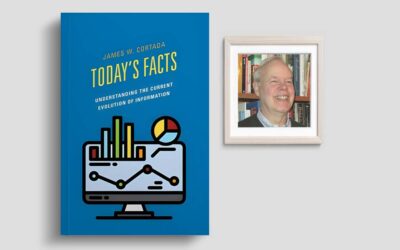Your audience is… changing!
Originally posted on SydneyPLUS blog 5/30/2014
Two information industry veterans walk into a bar. They both walk out. What do you think happened?
Who cares? It’s not about what we industry veterans think, it’s what our end users think that matters and many of them grew up using Facebook and Twitter.
Not what you think.
We think of technology as a delivery mechanism, but it’s not simply that: applied technology is actually a key and daily part of modern culture. Millennials, who are now landing entry level and midlevel positions in the firms we work in, have a completely different set of expectations when it comes to getting information and communicating in general. For example, they tweet.
Twitter’s little secret.
Very few people tweet original thoughts. Most tweets are actually “re-tweets” or “shared” content. Those active in the Twittersphere don’t do Google searches or log in to Facebook pages. They follow people who tweet on topics they are interested in, or set up searches based on #topicofinterest so that information flows to them.
Imagine that this Twitter user now joins your company. What are his/her expectations about the universe of information? No longer is there a happy cry of “I have information at my fingertips;” instead there’s the assertion and requirement that “Information I am interested in will find me,” or even “information I don’t even know I need or want should find me!”
Entitled? Maybe, but the technology exists to push information to those most likely to want it. Will Millennials resist your efforts to push content to them? No, they won’t…they’re your perfect audience, if the information is relevant.
Building a digital community of interest.
With Twitter, or Twitter- like technology, the existence of interesting content can be instantly communicated to people. And there is a great follow-on effect – if they know someone who might be interested, they’ll share it with them. Broadcast good content and make it easy to share. No need to build or moderate anything.
So, you don’t tweet. Should you? It may not be what you want to do personally. But can Twitter or something like it enhance your knowledge sharing agenda?
There are tons of people on Twitter who try to cultivate their guru status by retweeting articles they have read and found valuable. It seems to work for them and they are viewed as thought leaders. Can this strategy work within your organization?
Speak with your IT team about internal instant messaging (IM) or inexpensive chat application technology that you can leverage for this purpose, or failing that, leverage email with nothing more than a “Tweetlike” subject heading and a link to the underlying content.
Where to next?
It’s becoming evident that (sadly) for a wide number of reasons, people no longer read more than a snippet as the first method of information consumption…but they will look. And then if what they see is compelling, they might follow up with reading and greater engagement with a subject. As you think about how your end users are changing, and develop strategies for adapting and proactively accommodating them, consider how to use multimedia in your library or information center outreach, including via tweets, chat or IM.
Remember, it’s not about what we think. It’s what the end users think that matters.

Ron Aspe
Stan writes regularly for Lucidea’s Think Clearly blog. Subscribe to ensure you never miss a post with engaging information for KM practitioners and special librarians! Learn about Lucidea’s Presto, SydneyDigital, and GeniePlus software with unrivaled KM capabilities that enable successful knowledge curation and sharing.
Similar Posts
Interview with the Author: Jim Cortada on Today’s Facts and the Evolution of Information
Dr. James Cortada, historian and senior research fellow at the Charles Babbage Institute, explores the history of information in his forthcoming book. By examining how information has been created, organized, and used over time, Cortada reveals patterns that continue to shape modern librarianship and knowledge management.
The Complicated Feelings Librarians May Have About AI
GenAI will affect how we do our work and the type(s) of work we engage in. In navigating the transformative potential of GenAI, we should engage in reflective practice that centers on our core professional values.
Recommended AI Literacy Frameworks for Special Librarians
These frameworks provide insights and approaches to help you determine the best ways to address build and promote AI literacy in your specific context.
Intentional Growth: Special Librarian Professional Goals for 2025
Setting professional development goals may feel overwhelming, but with the right framework and mindset, it can be a rewarding and empowering process.



